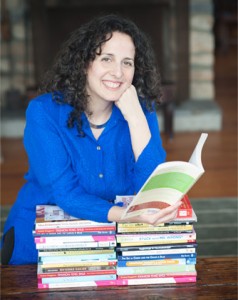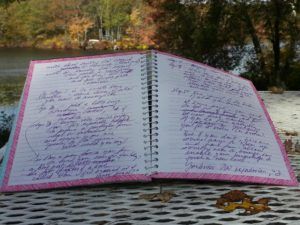
A few months ago, I received an email from a woman in Norway who told me she planned to take time off from her executive career to write a book on leadership. “I plan to travel to Boston for two months to write my book and work with you.” By our next email, she had bought her plane tickets.
I wasn’t quite sure how I would help an author writing in another language. I could not be her editor. But her certainty that this would work won me over. And the collaboration has been both exciting and satisfying.
When we get together to discuss the book, I have discovered that she writes in a combination of English and Norweigan. I wondered why.
“English has so many words for almost anything”–each with its specific nuances. For emotions, for example, Norweigan offers just the basics, while English presents so many different options, each with their nuanced expression.
One of the things I love about writing and editing is searching for “le bon mot” — that perfect word which conveys so much with so little.
How to Write Well
When an author writes, “He went…” I invite him to get specific about how: Did the person walk or run? More specifically, how did he walk? Did he saunter? Meander? Hobble? Sprint? Your verb choice can take an abstract notion “went” and make the action leap off the page: It becomes real for your reader. They can picture it, smell it, taste it, sense it.
We sometimes take for granted what a flexible and rich language we have, offering vast choices that can give our writing depth, overtones, subtlely and vivid expression.
 Shakespeare, of course, was a master of this. By contrast, the modern directive to “write for an eighth grade vocabulary” can inflict the damage of pressuring more and more words into disuse.
Shakespeare, of course, was a master of this. By contrast, the modern directive to “write for an eighth grade vocabulary” can inflict the damage of pressuring more and more words into disuse.
While you don’t want to use arcane words for a trade book meant for a wide audience, I encourage you to play with what you see as the limits. Push on them just a little when a less common word truly does offer more clarity of meaning.
Avoid shorthand with your verb choice, too. The more a verb brings the action to life, the more you draw your readers in–whether you are writing a memoir, a novel, an anecdote for a self help book or a blog post.
So, tell me, what do you love about the English language? What’s one of your favorite words? What questions do you have on how to write well? Or what tips can you share?



Dear Lisa,
I am Greek but I love writing in English.Maybe because it really is a rich language.Greek can be a
rich language too,I know,but I still love expressing myself in English,even when I know I may be
making mistakes!
My favorite word: ” scintillating”.I can almost see it blinking with tiny fairy lights!
Thank you for your inspiring post!
Wow, Maria. Inspiring that you love to write in English as well. “Scintillating” is expressive and I love the images it conjures for you!
What I love about English is that our language comes from so many places. We have “behoove” and “dentifrice” and “walkie-talkie.” Most of the time we have the luxury of choosing from among several ways to say something and occasionally we have the pleasure of requiring exactly one word in particular. And I love our regional differences: One cooking show host will tell us to start with our largest stockpot and another will tell us to grab a big ol’ pot. Deciding how to say things and noting how other people choose to is one of the unheralded blessings of being an English speaker, but I thoroughly appreciate it.
Of all the writers I have worked with, Melissa, I think you may be the most in tune with the nuanced meaning of words and the repercusions of every word choice! I love that about you.
I agree with the Norwegian woman you worked with and the above commentator. English is a strong language, especially with verbs. While French is very poetic and still stirs lots of emotions when I read in my native language, English is powerful. It’s easier for me to speak in French, but when I write I love English most. It remains a challenge but I think I can show more with less words in English than in French, for example.
That’s interesting, Evelyne. If fewer words can say more–that sounds to me like the idea we are talking about of the many nuances a word may have and how precise English can sometimes be…
I love our language because there are more exceptions to rules than there are rules! I have so much to learn. The English Language is like the James Dean of languages…eh, but what do I know? I do know one of my favorite words is “plethora”.
I appreciate you, Lisa!
The James Dean of Languages? Tell me more, Dawn.
I love to speak and write in English, it’s succinct – I can use fewer words than my first language in Italian. When I have trouble expressing what I want to say, I think first in Italian and voila the connection between Latin and English gives power to my writing.
Thanks for this interesting post .
I’m fluent in various languages, and wrote a post about reading in different languages on my http://14thcountry.com blog. I quite agree with Lisa that English is extremely “rich and flexible”, it’s the best to write in for proper depth and subtlety. Evelyne is right too when she says you get more out of English. When I translate a standard page of French into English, the result is generally some 5 lines shorter.